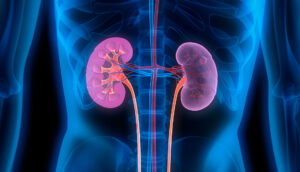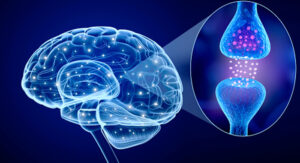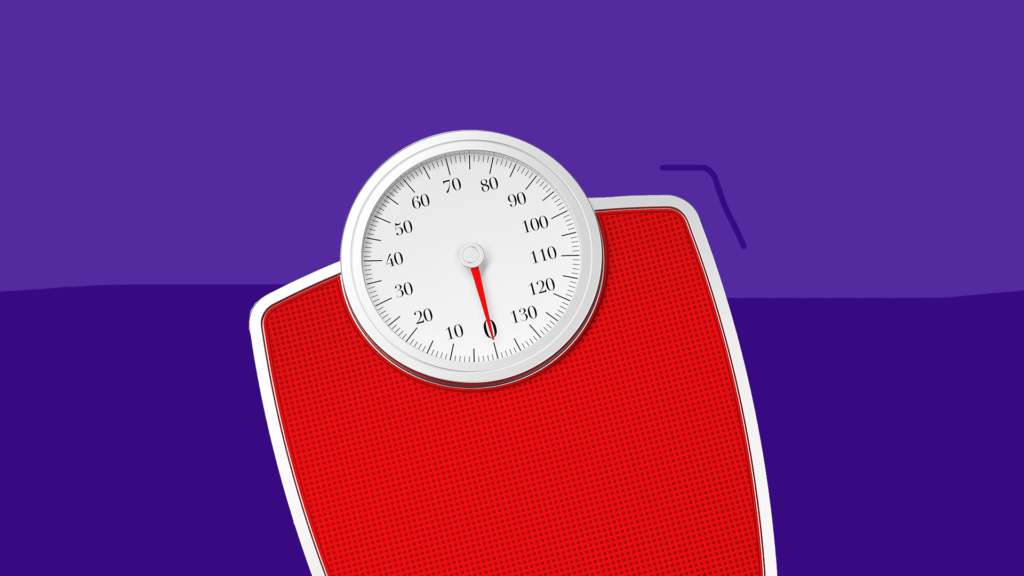Unintentional weight loss can be a cause for concern. You may be wondering what is causing you to lose weight even though you are not making any changes to your diet or exercise routine. There are many potential causes of unintentional weight loss, some of which are more serious than others. In this blog post, we will discuss 13 of the most common causes of unintentional weight loss. If you are experiencing unintentional weight loss, read on.
Contents
What Is Unintentional Weight Loss?
 Unintentional weight loss is defined as a reduction in body weight that occurs without any conscious effort to lose weight. This means that you are not deliberately dieting or exercising in an attempt to lose weight. Unintentional weight loss can be concerning, as it may be a sign of an underlying health condition.
Unintentional weight loss is defined as a reduction in body weight that occurs without any conscious effort to lose weight. This means that you are not deliberately dieting or exercising in an attempt to lose weight. Unintentional weight loss can be concerning, as it may be a sign of an underlying health condition.
Unintentional weight loss is also known as involuntary weight loss. It is important to note that some amount of weight loss is normal. For example, it is not unusual to lose a few pounds after starting a new exercise routine or making changes to your diet. However, if you are losing weight without making any changes to your lifestyle, this may be cause for concern.
13 Causes Of Unintentional Weight Loss
If you’re not trying to drop pounds and you suddenly find yourself shedding them without explanation, it could be cause for concern. Here are 13 potential causes of unintentional weight loss:
An overactive thyroid gland (hyperthyroidism)
Hyperthyroidism is a condition in which your thyroid gland produces too much of the hormone thyroxine. Thyroxine is responsible for regulating your metabolism. An overactive thyroid can therefore lead to sudden weight loss, among other symptoms such as anxiety, restlessness, and difficulty sleeping.
Celiac disease
Celiac disease is an autoimmune disorder that affects the digestive system. When people with celiac disease eat gluten (a protein found in wheat, barley, and rye), their immune system reacts by damaging the lining of the small intestine. This interferes with the absorption of nutrients from food, which can lead to weight loss.
Cancer
Cancer is a disease that can cause many different symptoms, including unintentional weight loss. The cancer cells grow and divide uncontrollably, forming tumors. As these tumors grow, they can interfere with the normal functioning of the body’s organs and systems, including the digestive system. Cancer, especially gastrointestinal cancer, can cause weight loss. The cancer cells can also release substances that interfere with the way your body uses energy, which can lead to fatigue along with weight loss.
Chronic kidney disease
 Chronic kidney disease (CKD) is a condition in which the kidneys are damaged and can’t filter blood properly. This can lead to a build-up of toxins and fluid in the body, as well as a decrease in appetite, which can cause weight loss. It can also cause fatigue and weakness. Chronic kidney disease is a serious condition that can lead to renal failure.
Chronic kidney disease (CKD) is a condition in which the kidneys are damaged and can’t filter blood properly. This can lead to a build-up of toxins and fluid in the body, as well as a decrease in appetite, which can cause weight loss. It can also cause fatigue and weakness. Chronic kidney disease is a serious condition that can lead to renal failure.
Depression
Depression is a mood disorder that can cause a variety of physical and psychological symptoms. These symptoms can include changes in appetite and energy levels, which can lead to weight loss. It can interfere with your ability to eat and sleep, and it can increase your levels of stress hormones. Depression is also associated with feelings of worthlessness, guilt, and hopelessness, which can further contribute to weight loss.
Crohn’s disease
Crohn’s disease is a type of inflammatory bowel disease (IBD). It causes inflammation of the digestive tract, which can lead to abdominal pain, diarrhea, and weight loss. Crohn’s disease is also associated with fatigue, anemia, and malnutrition which can contribute to weight loss.
Diabetes
Diabetes is a condition that affects the way your body uses blood sugar (glucose). If you have diabetes, your body either doesn’t produce enough insulin (type I diabetes) or can’t use insulin properly (type II diabetes). This can cause elevated levels of glucose in the blood, which can lead to weight loss. It can also cause fatigue, increased thirst, and frequent urination.
Heart failure
Heart failure is a condition in which the heart can’t pump enough blood to meet the body’s needs. This can lead to fluid buildup, as well as a decrease in appetite and weight loss. This weight loss is usually due to a loss of muscle mass. Heart failure can also cause fatigue and shortness of breath.
HIV/AIDS
HIV/AIDS is caused by the human immunodeficiency virus (HIV). HIV attacks the body’s immune system, making the person infected susceptible to other infections and illnesses. This can lead to a decrease in appetite, as well as fatigue and wasting (a condition characterized by muscle loss and extreme weight loss). People with HIV/AIDS may also experience fatigue, diarrhea, and nausea.
Malabsorption syndrome
Malabsorption syndrome is a group of disorders that affect the way the body absorbs nutrients from food. This can lead to nutrient deficiencies, as well as weight loss. Malabsorption syndrome can be caused by a variety of conditions, including celiac disease, Crohn’s disease, and intestinal parasites. It can also be caused by certain medications, such as antibiotics and chemotherapy drugs.
Parkinson’s disease
 Parkinson’s disease is a neurological disorder that can cause a variety of symptoms, including tremors, muscle rigidity, and impaired movement. It can also lead to changes in appetite and weight loss. People with Parkinson’s disease may also experience depression and anxiety, which can further contribute to weight loss.
Parkinson’s disease is a neurological disorder that can cause a variety of symptoms, including tremors, muscle rigidity, and impaired movement. It can also lead to changes in appetite and weight loss. People with Parkinson’s disease may also experience depression and anxiety, which can further contribute to weight loss.
Rheumatoid arthritis
Rheumatoid arthritis is a type of arthritis that causes inflammation of the joints. This can lead to pain, stiffness, and swelling. It can also interfere with your ability to eat and sleep, as well as your overall sense of wellbeing. All of this can contribute to weight loss which, in turn, can further exacerbate the symptoms of arthritis.
Certain medications
Certain medications can also contribute to unintentional weight loss. Some of the medications that can lead to weight loss are:
- Beta-blockers
- Diuretics
- Insulin
- Certain antipsychotic medications
These medications can cause different side effects that can lead to weight loss. For example, beta-blockers can cause fatigue and dizziness, while diuretics can cause dehydration and increased urination. Insulin can cause low blood sugar, which can lead to hunger and cravings. And finally, certain antipsychotic medications can cause a decrease in appetite.
These are only a few potential causes of unintentional weight loss. If you’re losing weight without explanation, be sure to speak with your doctor to rule out any underlying health conditions.
How To Overcome Unintentional Weight Loss?
If you’re struggling with unintentional weight loss, there are a few things you can do to overcome it. Following are the most effective strategies:
See your doctor
This is the most important thing you can do if you’re struggling with unintentional weight loss. Your doctor will be able to rule out any underlying health conditions that may be causing it. Also, be sure to let your doctor know if you’re experiencing any other symptoms, as they may be related. An expert can give you the best chance at finding out what’s going on and getting back to a healthy weight.
Make sure you’re getting enough calories
 It’s common for people who are trying to lose weight to inadvertently cut too many calories from their diet. This can lead to feelings of deprivation and hunger, which can make it difficult to stick to your diet in the long term. Make sure you’re eating enough food to support your weight loss goals. Try to include high-calorie foods in your diet such as nuts, nut butter, avocados, and olive oil.
It’s common for people who are trying to lose weight to inadvertently cut too many calories from their diet. This can lead to feelings of deprivation and hunger, which can make it difficult to stick to your diet in the long term. Make sure you’re eating enough food to support your weight loss goals. Try to include high-calorie foods in your diet such as nuts, nut butter, avocados, and olive oil.
Get moving
Exercise is important for overall health, but it can also be helpful in overcoming unintentional weight loss. Exercise helps to boost your metabolism and burn calories. It can also help to increase your appetite. If you’re struggling to get enough exercise, try joining a gym or taking up a new sport. You can also try doing at-home workouts with a friend or family member.
Don’t get discouraged
Unintentional weight loss can be frustrating, but it’s important to stay positive and focus on your goals. You should also remember that there is no one-size-fits-all approach to weight loss. What works for someone else may not work for you. Just keep trying different things until you find something that works for you. You’ll eventually reach your goal weight if you stay dedicated and motivated.
These are just a few tips to help you overcome unintentional weight loss. If you’re still struggling, talk to your doctor or a registered dietitian for more help. With the right support, you can reach your weight loss goals.
Conclusion
If you’re experiencing unintentional weight loss, it’s important to see your doctor. While some causes are benign, others may be more serious. If you have any concerns, don’t hesitate to speak with your doctor about them.
Unintentional weight loss can be frustrating and worrisome. However, by understanding the potential causes, you can take steps to address the issue. Being aware of the various causes of unintentional weight loss can also help you to be more proactive about your health.
For more tips on healthy and effective ways of weight loss, contact Mantra Care. We can help you develop a healthy weight loss program that is tailored to your specific needs and goals. You can also consult with a registered dietitian or nutritionist through our online nutrition counseling program if you have any questions or concerns about starting a new diet.


